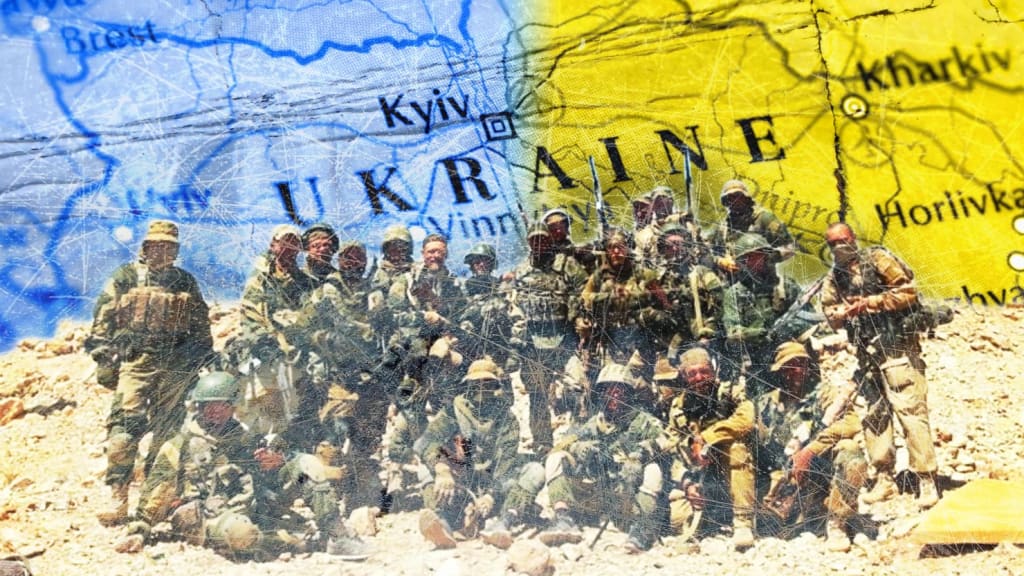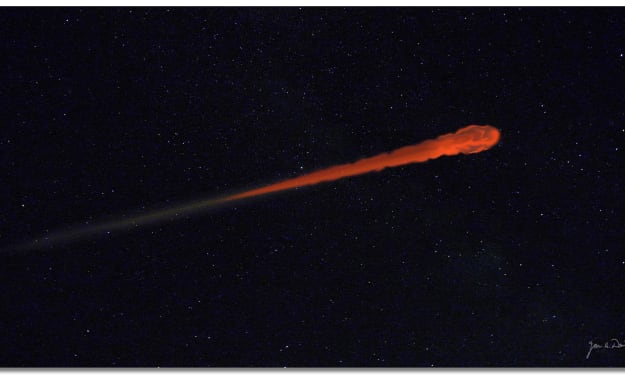What exactly is Russia's mercenary organization, the Wagner Group?
It's no secret that the Wagner Group has mercenaries operating everywhere. While local authorities (and Russia) claim that the people on the ground are simply training local soldiers, the UN has urged to cut ties with the group.

Introduction.
Before the invasion, Russia amassed approximately 190,000 troops on Ukraine's border. However, there may be other, more enigmatic Russian forces fighting there. According to a February 28th report in the Times, more than 400 mercenaries from Russia's Wagner Group have been dispatched to Kyiv to assassinate Ukraine's president, Officials in the United States claim to have seen evidence of Wagner's involvement in the war. Although those reports have not been confirmed, Wagner's presence would not be surprising. For years, Ukraine has accused the private military organization, which appears to have close ties to the Kremlin, of fighting in the disputed eastern Ukrainian cities of Luhansk and Donetsk.
Torture, rape, and extrajudicial killings have been accused of the mercenaries, who have reportedly fought in both northern and sub-Saharan Africa. What exactly is the Wagner Group, and how is it related to the Russian government?
Wagner does not exist legally, according to Sorcha MacLeod, the UN's working group on the use of mercenaries. Wagner is a network of companies and groups rather than a single entity. According to a European Union regulation passed last December that imposed sanctions on the group and certain individuals, it was founded by Dmitry Utkin, a former Russian soldier with Nazi tattoos. It is said to have been named after Hitler's favorite composer.
Mr. Utkin was photographed alongside Russia's president, Vladimir Putin, at a Kremlin event in December 2016, indicating the group's powerful ties. Wagner is thought to be funded by Yevgeny Prigozhin, a businessman who is also accused of running Russia's troll farm, the Internet Research Agency. The Russian armed forces reportedly cooperate with the group, providing it with munitions and transport aircraft. Wagner has been compared to Putin's personal army by the head of Ukraine's security services.
The Wagner Group in Russia does not exist.
Over the last seven years, reports from war zones and fragile countries around the world have emerged about shadowy groups of mercenaries operating under the guise of the Russian private military contractor Wagner.
A report issued late last month by a United Nations panel of experts accused Russian instructors to the Central African Republic's armed forces of indiscriminate killings, looting, and enforced disappearances carried out alongside the Central African military. While the report to the United Nations Security Council does not name the instructors as Wagner affiliates, news reports and the United Nations working group on mercenaries have.
Operatives from the vast Wagner network have fought alongside Russian and separatist forces in Ukraine, as well as in Mozambique, where they were hired to fight insurgents. However, the organization defies the conventional definition of a private military contractor by combining mercenary activity and natural resource extraction while advancing the Kremlin's foreign-policy objectives. Although nominally private, the group is thought to be closely linked to the Russian security apparatus, despite the Russian government's denial. The network's murky nature makes it difficult for victims, governments, and international institutions to hold the group accountable for alleged atrocities.
What exactly is the Wagner Group?
The first thing to realize about the Wagner Group is that there most likely isn't one. According to research, there is no single registered business called Wagner.
The network's entities have been described in US Treasury sanctions designations as being involved in a wide range of activities, including suppressing pro-democracy protests, spreading disinformation, mining for gold and diamonds, and engaging in paramilitary activity.
The group, as it is known, first appeared in Ukraine in 2014, assisting the Russian military in the annexation of Crimea. According to Sergey Sukhankin, a senior research fellow with the Jamestown Foundation, Ukraine was "basically the beginning, the departure point for the Wagner Group." Since then, a web of paramilitaries and businesses has spread to Syria, where they have fought alongside embattled President Bashar al-Assad while gaining a foothold in the country's energy sector, as well as to Libya, Sudan, Madagascar, Mozambique, and the Central African Republic. While Wagner has become a useful shorthand for describing this enigmatic and vast network, experts warn that it may interfere with our ability to think about how it works.
It's extremely problematic that we continue to refer to them as the Wagner Group because it makes them sound like these ghostly operators who can't be tracked down, which they aren't, according to Candace Rondeaux, a senior fellow at the Center on the Future of War, a collaboration between Arizona State University and the New America think tank.
It makes it difficult for legislators and policymakers to limit, contain, deal with, or mitigate risks. If they can't conceptualize the problem correctly, they won't be able to solve it properly, according to Rondeaux.
What information we do have about the network has been painstakingly pieced together by investigative journalists, researchers, U.N. and government reports, and corporate documents obtained through public records requests by the Dossier Center, a London-based investigative organization supported by exiled Russian oligarch Mikhail Khodorkovsky
Russian journalists who have done some of the most in-depth reporting on the group have done so at great personal risk. In 2018, a group of Russian journalists sent to the Central African Republic to report on Wagner's activities were assassinated in what is believed to have been a well-planned ambush. Maxim Borodin, a reporter who covered the deaths of Wagner fighters in Syria in 2018, died the same year after falling from his apartment's balcony. Others have been harassed and threatened.
Who exactly is Yevgeny Prigozhin?
Yevgeny Prigozhin, a close ally of Russian President Vladimir Putin, is thought to financially back the Wagner Group and has been sanctioned multiple times by the US for financing the Internet Research Agency—better known as the troll factory—which interfered in U.S. elections in 2016 and 2018. A number of Prigozhin-related companies have also been sanctioned by the US Treasury for their operations in Africa.
Prigozhin's role in Sudan highlights the interplay between Russia's paramilitary operations, support for authoritarian regimes, and resource exploitation, according to a press release issued by the US Treasury last year announcing the sanctions. Prigozhin has repeatedly denied any involvement with the Wagner Group or the Russian defense ministry.
In the late 1990s, Prigozhin expanded to open a restaurant that Putin frequented early in his presidency, often with visiting foreign dignitaries, including US President George W. Bush. He then went into the catering business, where he won lucrative contracts to supply the Kremlin, schools, and the Russian military, earning him the nickname Putin's Chef.
What is Wagner's relationship with the Russian government?
Prigozhin, who has no military background, is an unlikely candidate to be running an international network of paramilitaries or political influence operations. However, his background in contracting with the Russian Ministry of Defense, as well as his apparent close relationship with Putin, have led experts to believe that he has been used as a middleman to conceal Russian state activities. The US government has described the Wagner Group as a proxy force for the Russian Ministry of Defense, while the group's operatives train at a camp shared by Russian special forces in Molkino, southern Russia.
Kimberly Joy Marten, a Columbia University expert, believes he is the middleman and the contractor. I'm sure he gets a large bonus for being the contractor, and then he has these companies that appear to benefit in cases where minerals or oil are involved.
Subcontracting high-risk and experimental operations in fragile states provides the Kremlin with a veil of plausible deniability and shields the Kremlin from public scrutiny of any combat losses. The Kremlin has attempted to minimize the deaths of hundreds of Wagner fighters in Syria, leaving bereaved families perplexed.
Private military companies are illegal in Russia, giving the Kremlin the ability to crack down on the group if necessary.
It additionally creates a vacuum of answerableness for victims of alleged atrocities committed by network operatives.
It's a immense challenge, in line with Sorcha John Macleod, a member of the UN working party on mercenaries, Associate in Nursing freelance panel of consultants World Health Organization investigated the group's activities within the Central African Republic. Russia's response to North American nation is that the entity has no legal existence, that personal military contractors don't seem to be allowable beneath Russian law, which mercenaryism is unlawful.
Accountability may be a downside in automotive as a result of individuals on the bottom do not know World Health Organization they are addressing or wherever they'll lodge a grievance without worrying, she explained. The Central African Republic's government recently wise the panel that It supposed to determine a commission of inquiry into reports of alleged abuses. we have a tendency to welcome the inquiry commission, however it should be effective, she said.
There is also some accountability—at some purpose. In May, the relatives of a Syrian man, Muhammad Hamdi Bouta Taha al-Abdullah, World Health Organization was viciously tortured and headless by Russian mercenaries in Asian country, filed a legal proceeding in national capital against the six men concerned in his death, the primary time anyone tried to carry Wagner fighters responsible in court. though the case might take years, supporters hope it'll find yourself before the EU Court of Human Rights, shedding new light-weight on the group's operations.
What is the origin of the name Wagner?
Parsing facts from the mythology that has fully grown up round the Wagner cluster is very tough on this subject. we do not understand wherever this name came from, in line with Sukhankin. In some ways, this is often a helpful platitude.
Dmitry Utkin, a former light colonel in Russia's military intelligence, the GRU, is claimed to possess used the alias Wagner in concert of the group's early commanders within the fighting in Japanese country. Utkin is claimed to possess been smitten with Reich, notably Adolf Hitler's favorite musician, Wilhelm Richard Wagner. Utkin was photographed in 2016 at a Kremlin ceremony observance the bravery of military personnel and civilians, However, he has not been seen publicly since.
Prigozhin seems to have an interest within the mythology encompassing Wagner. he's same to possess funded 3 feature-length action films concerning the organization's operatives in Libya and therefore the Central African Republic. Tourist, that premiered earlier this year within the latter country's capital, Bangui, offers a heroic portrayal of a gaggle of Russian military advisors sent to the country to fight violent rebel teams.
Is it attainable that Russia can use chemical weapons in Ukraine?
The White House has issued a warning to Vladimir Putin that he might use weapons of mass destruction.
In his desperate and bloody plan to de-Nazify country, Vladimir Putin has rocketed Kyiv, shelled metropolis, and bombed a infirmary in Mariupol. Some believe he can presently resort to worse. On March ninth, White House spokesperson Jen Psaki warned that Russia might use chemical or biological weapons in country, or stage a false-flag operation victimization them. on a daily basis later, Britain's Prime Minister Boris Johnson same, "I'll cause you to an extra prediction. What you are hearing concerning chemical weapons is true out of their playbook.
These warnings came when Russia’s foreign ministry defendant country of operational American-backed chemical- and biological-weapons laboratories—the latest of the many such spurious allegations. On Dec twenty first Sergei Shoigu, Mr. Putin’s defense minister, warned that a hundred and twenty yank mercenaries were within the Donets Basin region of Japanese country. On March third Sergei Lavrov, Russia’s secretary of state, claimed that the Pentagon was distressed concerning losing management of chemical and biological facilities in country. every week later Russia’s defense ministry same that labs in Kyiv, metropolis and Odessa were exploring the way to use birds and barmy to unfold pathogens.
What square measure thermobaric weapons, and do they exist in Ukraine?
They are additionally referred to as vacuum bombs, and once used indiscriminately, they'll be extraordinarily harmful.
Since Russia's invasion of country on February twenty fourth, Ukrainian officers and human-rights organizations have raised considerations concerning the employment of thermobaric weapons or vacuum bombs, with alarming accounts of however they sucked the air out of victims' lungs. On March ninth, Britain's defense ministry confirmed that Russia is victimization the weapons in country. what's the operate of a thermobaric weapon, and what role may it play within the war?
What will the influx of foreign fighters into Ukraine mean for the war?
Tens of thousands of people from 52 countries have volunteered, according to the government, It's the same as a firefighter hearing an alarm. I had to leave. That's how one Canadian explained his desire to fight Russia's invading forces in Ukraine. Ukraine's president, Volodymyr Zelensky, announced on March 3rd that 16,000 people from around the world had already volunteered to join the International Legion, his newly announced branch of the army. There are many people from Ukraine's post-communist neighbors among them, as well as 3,000 Americans. Dmytro Kuleba, Ukraine's foreign minister, stated that volunteers from 52 countries have signed up. Despite Western governments' reluctance to participate in combat, it appears that their citizens will. But how significant will their role be, and how will it affect the war?
For the simple reason that armies always need more troops, enlisting foreigners has long been popular. According to research published in the journal International Security by Elizabeth Grasmeder, 91 states counted foreign soldiers among their ranks between 1815 and 2020. The Foreign Legion, a nearly 200-year-old branch of the French army, still has around 9,000 members. Some may question foreign troops' loyalty and motivation. Their willingness to sign up for battle and risk their lives, on the other hand, can be striking. George Orwell, a British writer who spent his thirties shooting at fascists from the frontlines of Spain's civil war, later described having the pernicious, difficult-to-get-rid-of feeling that war is glorious after all.
Conclusion.
Wagner has a close, and often direct, relationship with the Russian government. There is evidence that the Wagner Group in Ukraine was subordinated to the Russian military. Wagner heavily relies on Russian military infrastructure, from sharing a base to being transported by Russian military planes to receiving military health care. The Russian state has also been documented as providing passports to the Wagner Group and, as implied by recent events in Belarus, even presidential-level political intervention.
Given these considerations, the transatlantic scholarly discourse on the Wagner Group should shift. Instead of adopting the Russian narrative that Wagner is a private military company, Wagner should be regarded as a classic proxy organization and dealt with accordingly.
The fact that Wagner intends to appear as a private military company is of limited significance in this context.
András Rácz works as a Senior Research Fellow for the German Council on Foreign Relations (DGAP) in Berlin, Germany. The views expressed here are solely his own and do not reflect the official position of CSIS, any other institution, or any state.
Background research for this study was funded by the National Research, Development, and Innovation Office of Hungary under research grant No. 129243, titled Tradition and Flexibility in Russia's Security and Defense Policy.
CSIS does not take stances on specific policy issues. As a result, all opinions, positions, and conclusions expressed in this publication are solely those of the author (s).
The fact that this analysis focuses solely on the direct connections between the Wagner Group and the Russian state is an important methodological distinction. As a result, issues of oligarchic interests occasionally overlapping with Russian state priorities, which may direct Wagner's operations in various parts of the world, fall outside the scope of this study.
About the Creator
Sami Tech
I worked in writing and photography since 2017, After attaining a BA in journalism and Mass Communications at the University of Michigan. Tague is journalism career has led to positions at. the City Michigan journal and several weeklies.






Comments
There are no comments for this story
Be the first to respond and start the conversation.